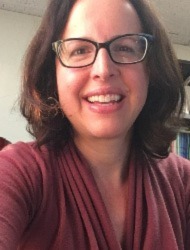Jasamin Rostam-Kolayi, Ph.D.
Professor of History
Biography
Jasamin Rostam-Kolayi studies twentieth-century Iran and, in particular, Iran-US relations in the Cold War era. She has published on gender and women’s studies, education, the Iranian women’s press. Her current research project examining the US Peace Corps in Iran has led to recent publications, including: “The New Frontier Meets the White Revolution,” Iranian Studies, 51:4 (May 2018) and “‘Beautiful Americans’: Peace Corps Iran in the Global Sixties,” in eds. Chen Jian, Martin Klimke, et. al. The Routledge Handbook of the Global Sixties: Between Protest and Nation-Building (Abingdon and New York: Routledge, 2018).
Degrees
2000, Ph.D., Modern Middle East History, UCLA
1994, M.A., Modern Middle East History, UCLA
1992, B.A., Middle East Studies, Wellesley College, MA.
Research Areas
Modern Iran, Iran-US relations, cross-cultural/transnational encounters, the Global Sixties, nationalism and gender.
Courses Regularly Taught
HIST 300A Historical Thinking
HIST 300B Historical Writing
HIST 467A Middle East in the Nineteenth Century
HIST 467B Contemporary Middle East
HIST 468A Women and Gender in the Middle East
HIST 490T Middle East-US Relations
Grants & Special Projects
Current Research Projects:
Dr. Rostam-Kolayi’s current research project is Iranians and Americans Engage: Peace Corps Iran, 1962-1976. She examines the US Peace Corps’ program in Iran through the realms of high diplomacy, social history, and cultural perception. Peace Corps Iran is one of the forgotten episodes of US-Iran relations. In both Iran and the U.S., this almost two-decade-long transnational and cross-cultural engagement of the 1960s and 1970s is scarcely known or remembered. Rather, it has been eclipsed by the tragic events of the Iranian Revolution, the taking of American hostages, and decades of devastating US sanctions on Iran. Since 1979, narratives of exceptional US-Iran cooperation, exchange, and partnership, such as the Peace Corps program, have been overshadowed by tensions and hostilities verging on war. Though often a witting and unwitting participant in Iran’s problematic state-sponsored development projects, Peace Corps Iran’s ultimate legacy was to bring together strangers from different national, cultural, and religious backgrounds and forge friendships across borders.

